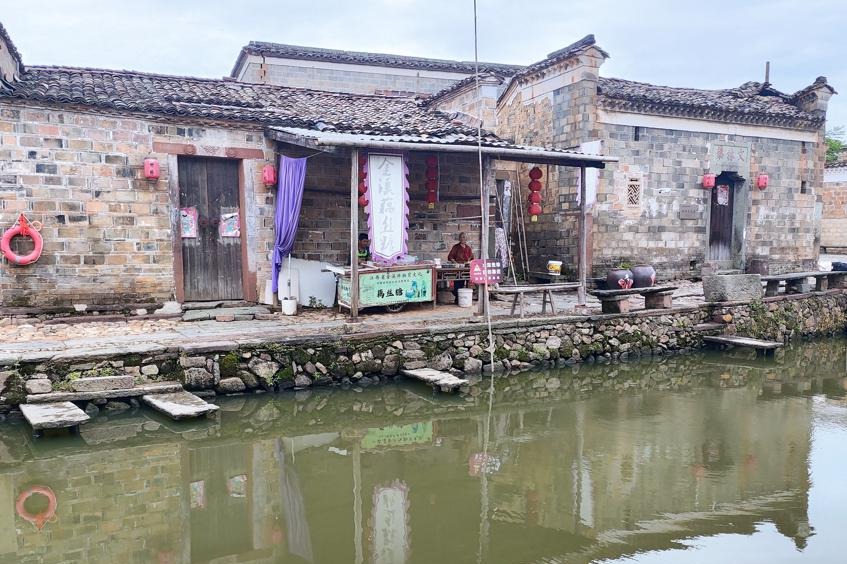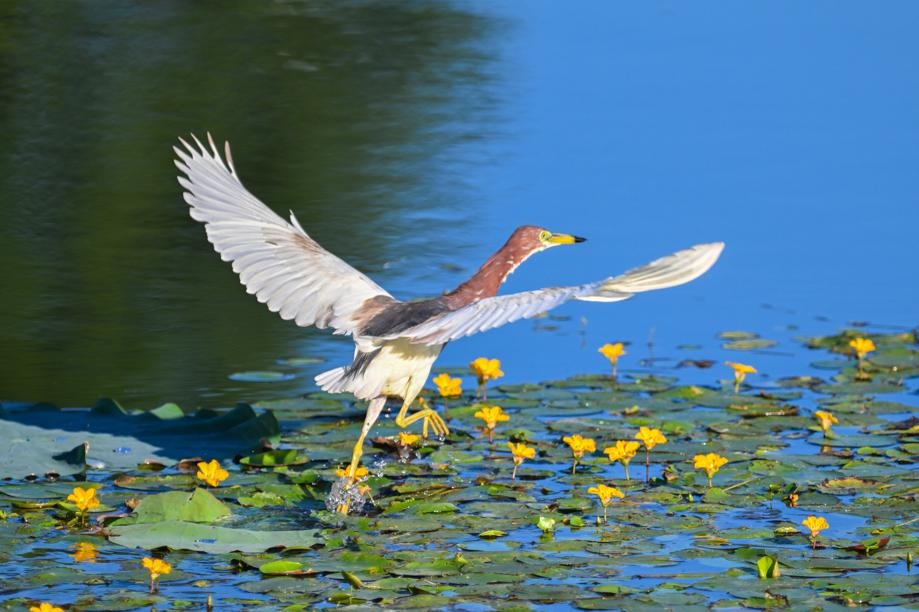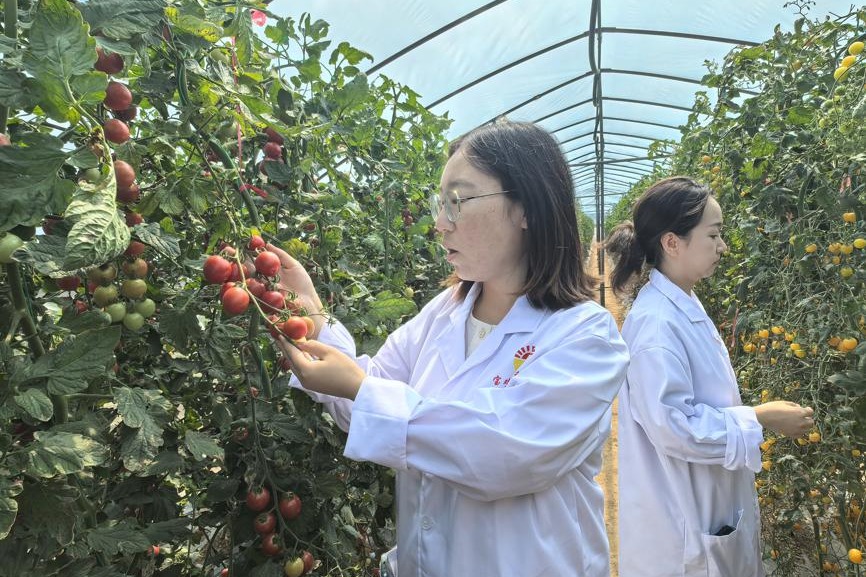'New type of party system' serves interests of all

BEIJING -- China is showing the world how a "new type of party system" can work in the best interests of the people.
While attending a panel discussion at the ongoing session of the National Committee of the Chinese People's Political Consultative Conference (CPPCC), President Xi Jinping called the system of multiparty cooperation and political consultation led by the Communist Party of China (CPC) "a new type of party system."
Combining the Marxist political party theory with Chinese reality, China created the "new type of party system" which is mainly carried out through the CPPCC.
The first session of the 13th National Committee of the CPPCC has brought together over 2,000 national political advisors from various political parties, people's organizations, and people of all ethnic groups, as well as from all sectors of society. They have been conducting extensive discussions on the country's political, economic and social issues to pool their wisdom for decision making.
REPRESENTS ALL, SERVES ALL
When attending meetings and discussions of the session, national political advisor Duan Minglong wears a round emblem embroidered with colorful threads on his chest.
"It was made by my aunt before I traveled to Beijing. It's a symbol of the sun that brings good luck, as our Jingpo people worship the sun god," said the 29-year-old of Jingpo ethnicity from southwest China's Yunnan Province.
Duan also sees the emblem as a reminder for him to represent and be a voice for Jingpo ethnic people and people from remote Wangzishu township, where he works as a judicial officer.
As a grassroots judicial staff member, he often visits the villagers' homes, mediating disputes and spreading legal knowledge.
However, it is not easy to reach many villagers' homes on rainy days.
"There are no cement roads in some places. Sometimes I have to walk in ankle-deep mud," he said.
During the session, Duan made a suggestion to improve rural roads, which was echoed by many other political advisors from underdeveloped areas.
Talking about his young age, Duan said part of the reason why he was chosen to be a national political advisor was probably due to his background as a non-CPC member from an ethnic group with a population of less than 150,000. Of the 2,158 members of the 13th CPPCC National Committee, only about 40 percent are from the Communist Party of China (CPC). All 56 ethnic groups are represented.
The members are from all walks of life, including farmers, factory workers, officials, entrepreneurs, experts and scholars, as well as religious leaders.
"It's a system that represents different levels of society, so the country is more able to make policies that work best for its people," said Fred Teng, president of the America China Public Affairs Institute and a specially invited overseas observer of the session.
PARTIES UNITE
Before attending the session, political advisor Yu Minhong visited a private school in Beijing's suburbs, where most of the students are children of migrant workers who work as couriers, vegetable growers and care workers in the city.
"The school is poorly equipped and staffed, and the parents have to spend 2,000 yuan (316 U.S. dollars) on tuition fee every year, which is a big burden for many," said Yu, chairman and CEO of education company New Oriental and a member of the China Democratic League (CDL).
Yu proposed pushing to readjust the allocation of education funding so that children of migrant workers can enjoy equal access to compulsory education.
"I get so worried when I see rural children suffer," said Yu, who was also born to a farmer family.
Since 2008, when Yu became a member of the CPPCC National Committee, he has been traveling around the country to understand the educational conditions of the rural areas.
One of China's eight non-communist parties, the CDL mainly consists of intellectuals working in the fields of culture, education, science, and technology.
"'Working relentlessly for state affairs, focusing on the well-being of the people' has been a tradition for the CDL," said Ding Zhongli, chairperson of the CDL Central Committee.
Unlike a one-party system or Western-style competitive and confrontational multiparty politics, China's multiparty cooperation and political consultation system allows the ruling party and the participatory parties to work jointly for the nation, he said.
Led by the CPC, the non-communist parties have been involved in campaigns related to health care, education, regional economic integration and poverty reduction.
Statistics show that since 2016, the non-communist parties have conducted 166 supervisory investigations into poverty reduction work and offered 567 suggestions to CPC committees and governments at different levels.
During the past five years, the non-communist parties invested in nearly 2,000 poverty-reduction projects, donated a total of 2.31 billion yuan in the form of money or material, and organized training that benefited some 399,000 people.
IT WORKS
"The sweetest thing for a political advisor is realizing that your proposals really worked to make a difference," said national political advisor Hu Guozhen, vice governor of Qiandongnan Miao-Dong Autonomous Prefecture of southwest China's Guizhou Province.
Hu recalled that at the session of the CPPCC National Committee in 2015, she put forward a proposal calling for the integration of rural and urban healthcare insurance schemes.
At the beginning of 2016, the country announced the decision to merge the two separate schemes for more equal access to basic health care.
In the 2014 session, she asked for more government subsidies on afforestation in rural areas. Later on, she was informed by the State Forestry Administration that the subsidy increase had been incorporated into the 13th Five-Year Plan.
"Now the subsidy on the state-owned forests has been increased from eight yuan to 15 yuan per mu in my hometown," she said.
Since 2010, Yu Minhong has submitted several proposals on improving rural teachers' income.
"I'm glad to see that the country has launched some policies to improve their incomes and other conditions," he said.
As many of the members are experienced officials, experts and professionals in different fields, they are in a good position to make proposals and offer wisdom on state affairs to the CPC and the government.
Wan Gang, vice chairperson of the CPPCC National Committee, said that over the past five years, a total of 29,378 proposals had been submitted by the CPPCC National Committee members, and 99 percent of them had been handled as of Feb. 20 this year.
"Most of the proposals have either been taken up or gradually put into practice," Wan said.





































